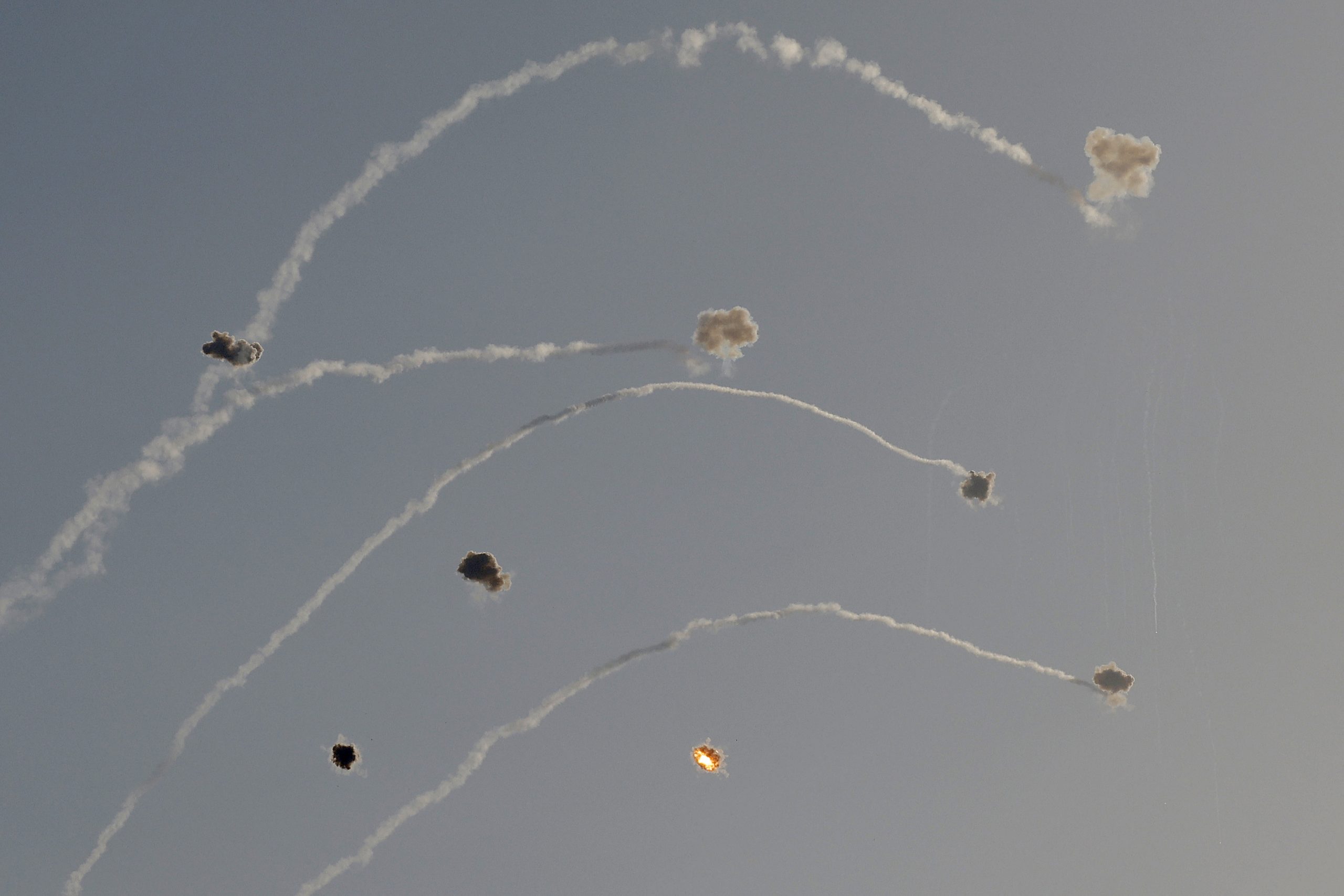At 9:53 am on July 18, 1994, a suicide bomber drove a van packed with explosives into the front gates of the Asociación Mutual Israelita Argentina (AMIA), a Jewish community center in Buenos Aires. It was the deadliest terror attack in Argentina’s history. Eighty-five people were killed, and hundreds more were injured; many were trapped under the rubble for days.
We will soon mark three decades since the attack, and nobody has been brought to justice.
This is despite a wealth of evidence that high-level Iranian government officials directed Hezbollah, the Lebanese-based Shiite terror group, to carry out the attack. These are the same players destabilizing the Middle East today and agitating for war with Israel.
It’s time for that to change.
JALAA MAREY/AFP via Getty Images
It’s no secret that Iran has funded, trained, armed, and dispatched terror groups like Hezbollah to carry out attacks all over the world. The United States, United Kingdom, Germany, and several Arab states recognize Hezbollah, in its entirety, as a terrorist organization. The European Union has only designated the group’s military wing as a terrorist organization, but not its “political” wing.
Yet naming a problem isn’t the same as confronting it.
Despite its murderous rampage, Hezbollah has faced no real consequences: Not for the AMIA bombing, nor the bombing of the Israeli Embassy in London that same year, or for murdering Israeli tourists and a bus driver in Bulgaria in 2012 (the two people convicted in that crime live free in Lebanon under Hezbollah’s protection).
The terror targets have not been limited to Jews and Israelis. Hezbollah claimed responsibility for the 1983 attacks on the U.S. embassy in Lebanon that took 63 lives. Declassified intelligence shows Iran was also behind the bombings of Western military barracks in Lebanon later that year, killing 305 people, mostly U.S. Marines, sailors, soldiers, and French military personnel.
Just like the AMIA bombing, no one has been brought to justice for those attacks.
Having faced decades of impunity, Hezbollah has learned that it can literally get away with murder around the globe. Now it is threatening to tip the Middle East into a large-scale regional war.
It should never have come to this.
U.N. Resolution 1701, which has been in force since 2006, was supposed to disarm Hezbollah and force the group north of the Litani River, which is located around 20 miles from the so-called “Blue Line” between Lebanon and Israel.
The UN created an Interim Force in Lebanon (UNIFIL) to establish a demilitarized zone there. But the force has done little more than watch Hezbollah metastasize across southern Lebanon, embedding itself in towns and villages and amassing hundreds of thousands of missiles and rockets that could overwhelm Israel’s aerial defense systems.
Since October 7, Hezbollah has used that arsenal to launch almost 5,000 rockets and explosive drones at Israel. The near-daily attacks have set swaths of northern Israel on fire and forced tens of thousands of families to evacuate their homes indefinitely. In recent weeks, the attacks have stretched deeper into Israel, making more and more of the small country uninhabitable.
At the same time, Hezbollah chief Hassan Nasrallah is ramping up the rhetoric. He recently vowed to fight Israel “without restraint, without rules, without limits and without restrictions,” and even threatened to attack Cyprus, a member of the European Union.
While global leaders have spoken with dismay about the escalating tensions between Hezbollah and Israel, they have failed to stop the attacks from Lebanon or to enforce Resolution 1701. If no solution is found, Israel will have no choice but to take matters into its own hands.
It’s not too late to stop an impending war — but that can only happen if the international community confronts Hezbollah and backs its resolutions with resolve.
That means designating both Hezbollah’s political and military wings as terrorist organizations, which would leave no room for ambiguity to freeze assets, ramping up counter-terrorism efforts, and bringing terrorists to justice. It also means implementing a true monitoring system and guarantees that Hezbollah doesn’t creep back toward Israeli territory and resume attacks on northern towns.
As world leaders and officials gather in Buenos Aires to mark the 30th anniversary of the AMIA tragedy, such accountability would be the most fitting way to honor the victims’ memories.
Until that happens, Hezbollah and Iran will have license to spread terror and commit murder around the world, just as they did the morning of July 18, 1994.
Aviva Klompas is the former director of speechwriting at the Israeli Mission to the United Nations and co-founder of Boundless Israel, a nonprofit organization that partners with community leaders in the U.S. to support Israel education and combat hatred of Jews.
The views expressed in this article are the writer’s own.
Uncommon Knowledge
Newsweek is committed to challenging conventional wisdom and finding connections in the search for common ground.
Newsweek is committed to challenging conventional wisdom and finding connections in the search for common ground.
